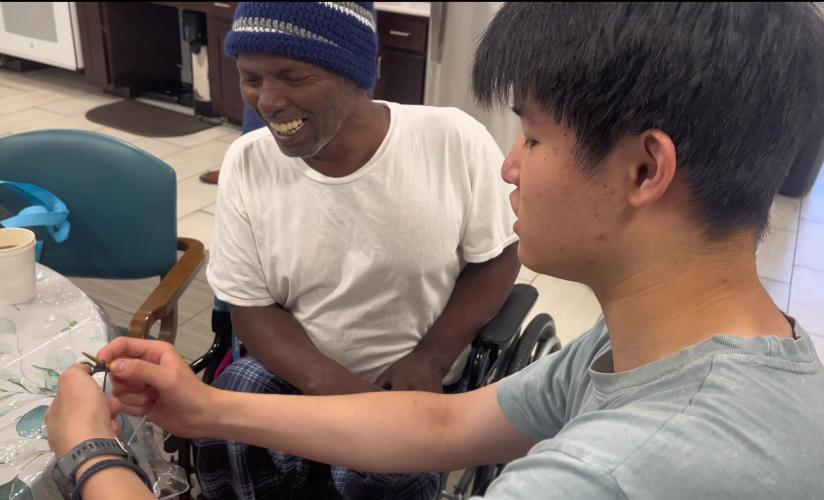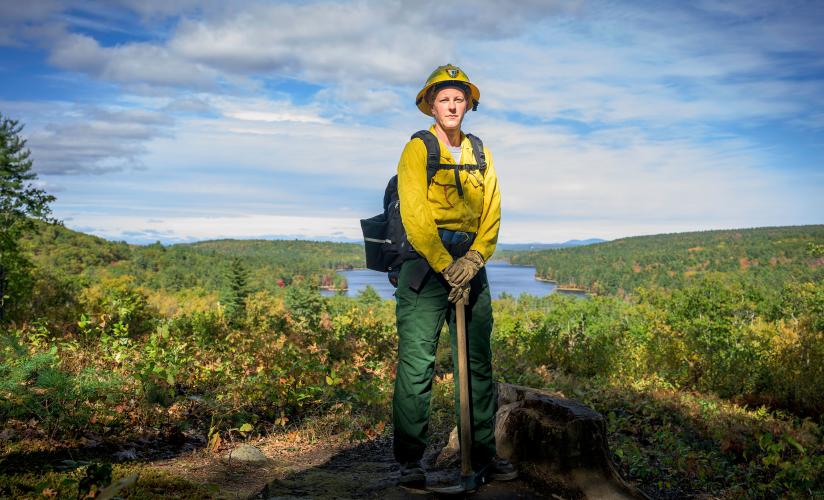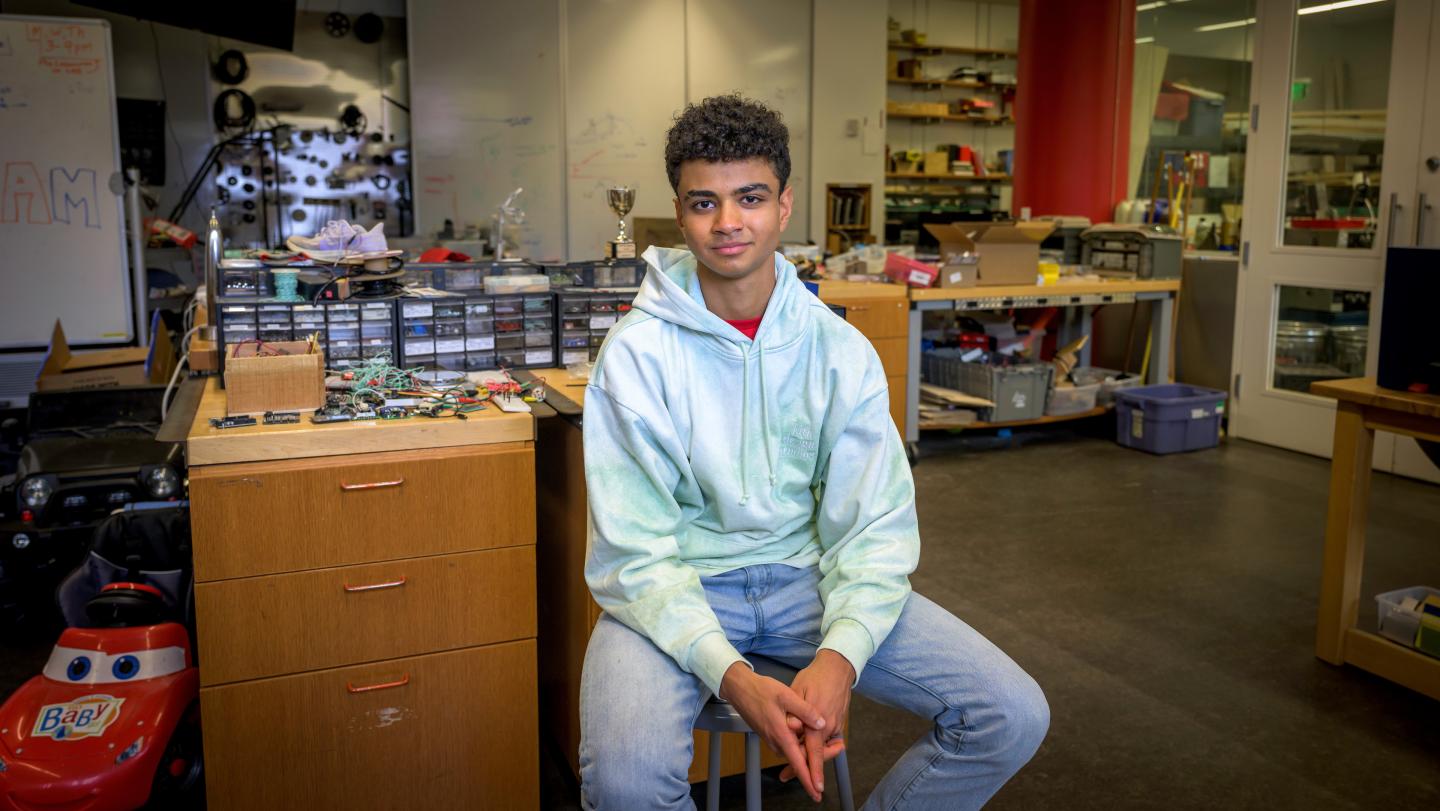

Jack Bocresion ’24 embraces both ancient languages and modern mathematics
A typical day for Joaquim “Jack” Bocresion ’24 can often seem like a high-wire intellectual balancing act — not that he’d have it any other way. His course load reflects his deep and varied passions: Latin 5 Honors, Greek 3 Honors, Advanced Chemistry and a math seminar in which he has begun to dive deep into number theory. There’s his work with the robotics team and the Classics Society, and on his own he’s pushed himself to bone up on abstract algebra, teach himself Sanskrit and read Ovid’s complete “Metamorphoses” in preparation for his upcoming Classical Honors capstone project on books and myths… in the original Latin, of course.
“I initially started reading the ‘Metamorphoses’ because I had thoroughly enjoyed my Fourth Form year in Latin 4 Honors, the poetry survey class, and I wanted to continue reading poetry, but at a faster pace with a focus on one work,” says the Sixth Former, who earned Dickey prizes for advanced math and Latin last spring. “I can become obsessed with things pretty quickly. But I love understanding new things and how the world around me works.”
Self-motivation and curiosity have long shaped Bocresion’s life. His Ethiopian-born father — a business consultant who speaks eight languages — and his Brazilian-born mother pushed Bocresion and his younger brother Luca ’26 to explore the world far beyond their New York City home.
“We were exposed to so many different things,” he says. “Different languages, different cultures, different ways of living.”
By the time he was a teen, Bocresion had taught himself several different coding languages and worked part-time as a web developer for a string of different corporate clients. When his middle school Latin classes felt too thin, he gave himself additional homework to gain better command of the language’s grammatical structure. It was much the same when he arrived at SPS as a Fourth Former in the fall of 2021. Pointed toward art classes instead of Greek by his academic adviser, who was concerned about the new student taking on too many demanding courses at the start of his time at SPS, Bocresion spent the following summer break doing a year’s worth of classwork on his own. Not only did he teach himself well enough to join Greek 2 that fall, at the end of the year he earned the Oakes Greek Prize for the best examination on the writings of Xenophon.
Not surprisingly, Bocresion has made the most of his time at St. Paul’s, regularly straddling the centuries between the worlds of the ancients and 21st century mathematical thinking. He says the space between those two eras is not as far apart as one might think.
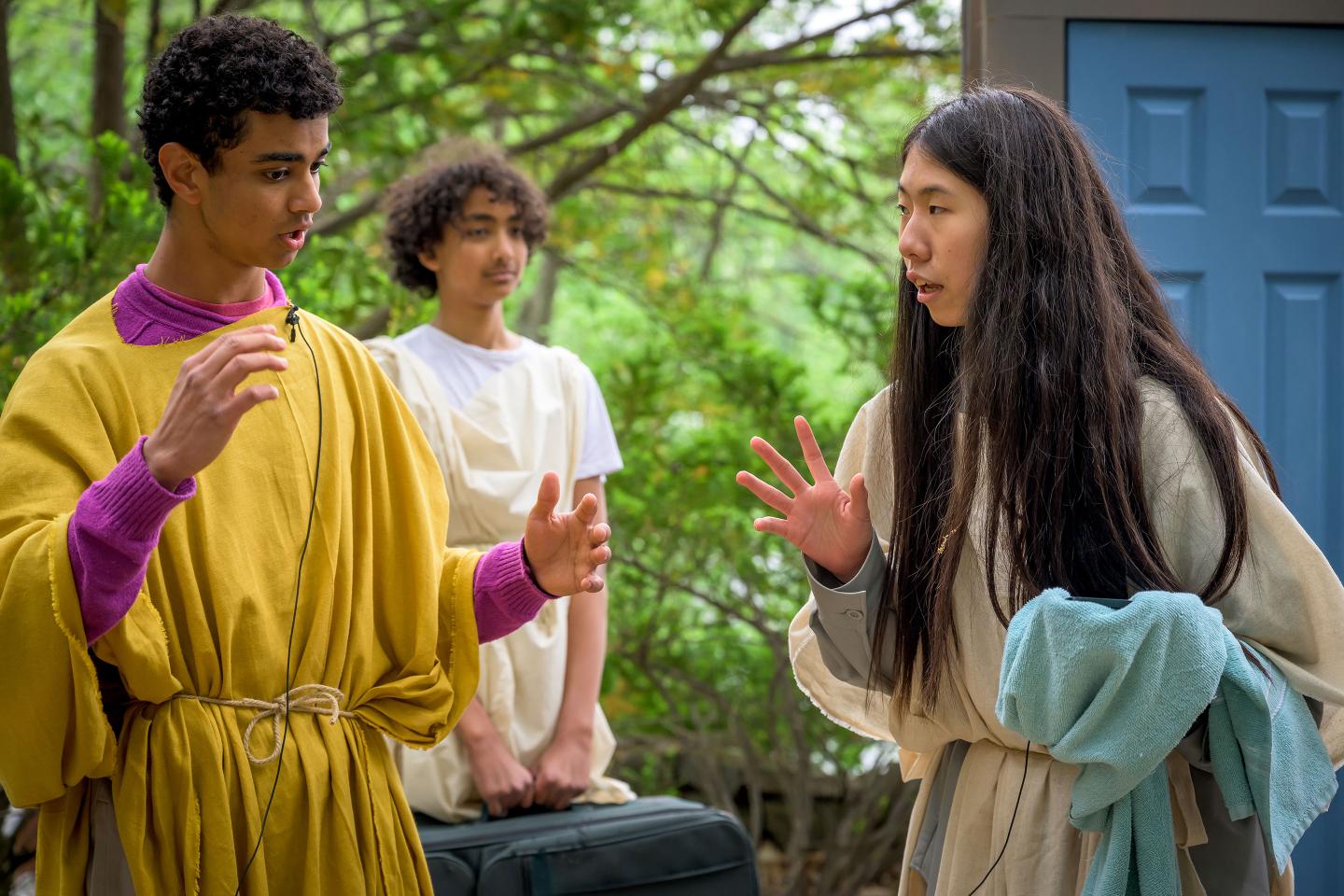
Bocresion performs in the Classical Honors Program Latin play during Graduation Weekend 2023.
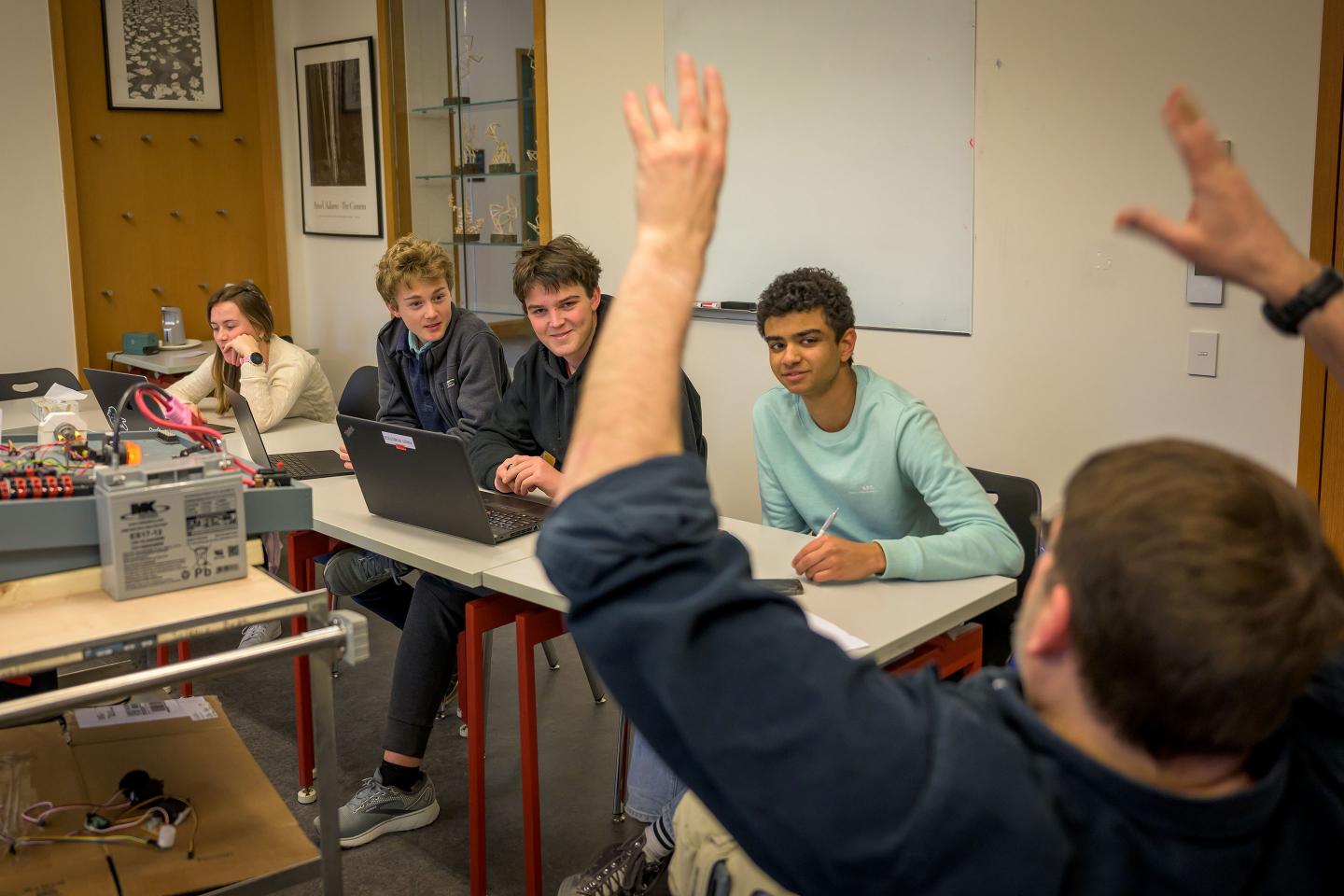
Bocresion and other students during a 2023 meeting of the SPS Robotics Club.
“It’s about new discoveries,” says Bocresion, whose plan for college includes double majoring in math and classics. “Building on the body of human knowledge and passing that on to the next generation and gaining a better understanding of who we are.”
Beyond the SPS grounds, Bocresion has served for the last two years on the board of the New Hampshire Junior Classical League, and he was one of a handful of students from across the state to participate in last year’s Latin Quiz Bowl. He says the allure of the classics is as much shaped by the sheer history of these ancient languages as it is by what’s still left to learn about the culture and civilizations that were built around them. “The people who spoke them are interesting and the physical objects that survived are also interesting,” he says. “So little actually did survive, and so now we are having to reconstruct those worlds. It’s a very collaborative field. You can build on the work of someone in the field today or you can build on the work of someone from a long time ago. That’s exciting.”
It’s much the same for Bocresion in his STEM work, in particular advanced math, which he says offers an important window into how the world works. “Math is fundamental,” he says. “The world is not math but math is a model for the world. You can abstract certain physical concepts and models for how the world works through it. It’s super interesting and elegant and it has purpose.”
The latter, especially, is particularly potent for Bocresion. When he was younger, he says, he admired the titans of technology, intrigued by their celebrity and wealth. But in going deeper into his own interests, his priorities and what he wants his life to represent have shifted. In building on the work of past scholarship, Bocresion hopes he can help lay the groundwork for future generations to find new breakthroughs in understanding both our past and our future.
“I’m a problem solver,” he says. “I love that kind of work, where you have something you want to find, and you have knowns and unknowns. You have a mission and there are a ton of different paths you can take. The work you do can have an impact on the world. For me, it’s a question of how can I advance humanity and help us learn more about who we are and what’s possible.”

